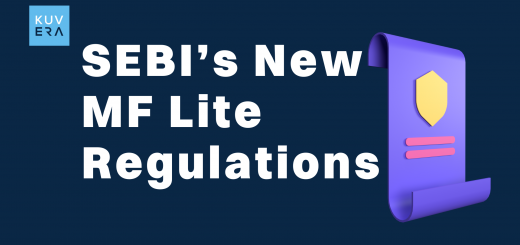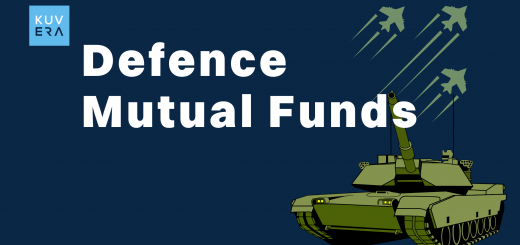Hedge funds are privately pooled investment vehicles that act as private investment partnerships. These funds allow investors to hedge market risks by investing the corpus in non-traditional and diversified asset classes. Investment takes place in equity and debt instruments, currencies, commodities, and derivative segments of domestic and foreign markets.
Hedge funds in India were introduced in 2012. The minimum investment amount in a hedge fund is Rs. 1 crore. Here, we’ll be covering all the details related to this investment vehicle.
Top Performing Global Hedge Funds
Here is a global list of hedge funds as per AUM or Assets Under Management:
| Fund Name | Assets under Management |
| Blackrock Advisors | US$789.5 billion (as on 30th June 2021) |
| AQR Capital Management | US$224 billion (as on 31st March 2021) |
| Bridgewater Associates | US$154 billion (as on 31st March 2021) |
| Renaissance Technologies | US$130 billion (as on 3rd June 2021) |
| Man Group | US$123.6 billion (as on 31st December 2020) |
| Elliott Management | US$ 113 billion (as on 31st December 2020) |
| Two Sigma Investments | US$68 billion (as on 31st March 2021) |
| Citadel Investors | US$33 billion (as on 31st March 2021) |
These were some of the best-performing hedge funds. Continue reading to know more about these funds!
How Do Hedge Funds Work?
Fund managers of these hedge funds deploy many strategies to ensure high returns for their investors. Usually, these funds have a vast corpus. Hence, it is difficult for one fund manager to look after the working of these funds. Therefore, many hedge mutual funds deploy multiple fund managers to manage a portfolio. They use the following ways to generate returns for their investors:
-
Global macro strategies
Fund managers use various economic variables to derive the investment horizon and strategies. They employ quantitative tools and techniques to calculate the holding period of an investment. All decisions are taken keeping in mind future price trends of that asset and not current valuations.
-
Event-based strategy
Fund managers take advantage of various macro and micro economic events in foreign markets to develop an investment plan. Events like an economic boom or crisis, mergers, acquisitions, share buybacks, etc., are considered to formulate plans that can generate significant returns.
-
Arbitrage
These funds also use arbitrage opportunities to invest their corpus and earn returns. Managers invest in equity, debt, and derivatives segments and use arbitrage as per market conditions.
-
Equity holdings
Hedge mutual funds invest a significant portion of their corpus in equity instruments in different financial markets. Managers use quantitative analysis to decide the underlying security, the timeline, and market position concerning equity holdings. They also look out for any big corporate event or markets turbulence to book profits.
Features of Hedge Mutual Funds
Some features of these funds are as follows:
-
Minimum investment
One can invest in a hedge fund with a minimum amount of Rs 1 crore. Sophisticated investors, HNIs, BFSIs, and various pension funds are investors of a hedge fund.
-
Portfolios
These funds have a diversified portfolio. They invest in traditional and non-traditional asset classes to hedge market risks and earn stable returns. The portfolio includes investments in equity, bonds, currencies, commodities, derivatives, venture capital, etc. Such a diversified portfolio neutralizes market risk.
-
Liquidity
These funds come with a lock-in period of varying durations. Investors cannot withdraw their money during these times. Hence, they are not more liquid than various other investment options like stocks, mutual funds, etc.
-
Fee structure
These funds have very high operating costs. Therefore, investors have to pay a high expense ratio for investing in them. Typically, the expense ratio of these funds is around 2% which is relatively high. They also come with performance fees which can go as high as 20% of the returns.
Taxation of Hedge Funds
These funds come under category III Alternative Investment Funds (AIF). Therefore, they are subject to taxation as per the tax rules of AIF. In the case of CAT III of AIF, the applicable tax rate differs if it’s:
- Business income: 42.74%
- Short-term capital gains: 17.94%
- Long-term capital gains: 11.96%
- Dividend income: 42.74%
The taxation occurs at the fund level and not at the investor level. It means an individual is not liable to pay taxes on earnings, but the fund houses deduct tax amount from total earnings before distributing the proceeds.
Who Can Invest in a Hedge Fund?
As mentioned above, the minimum investment amount for hedge funds is Rs. 1 crore. So, anyone having a substantial amount to invest can allocate money to these funds. However, HNIs, sophisticated investors, as well as NRI investors form a major portion of potential investors of these funds.
Fund managers adopt very aggressive investment strategies to generate significant returns for investors. Therefore, these funds come with a fair amount of risk as well. For individuals with a substantial investment corpus and high-risk tolerance, hedge funds are a suitable option.
Things to Consider before Investing in Hedge Funds
Here are a few things one must consider before investing in hedge funds:
-
Risk appetite
These funds come with high risk as fund managers employ aggressive investment strategies. If you are a risk-averse individual, it may not be a suitable investment option. On the other hand, if you have a moderate to high-risk appetite, you can invest your money in these funds.
-
Expense ratio
These funds come with a high expense ratio to cover the high operating costs of these funds. Individuals must consider the expense ratio before taking an investment decision, as a high expense ratio will effectively mean low earnings.
-
Financial objectives
Another essential factor one must consider before investing in hedge funds is their financial goals or investment objectives. These funds can accumulate wealth and give decent returns for investors in the long run.
-
Fund manager’s performance
Fund managers play a crucial role in managing a hedge fund’s portfolio. Every decision taken by them has a direct impact on the performance of these funds. Hence, it is imperative to analyse and take into account a manager’s past performance and see whether they have been able to deliver returns for their investors or not.
Final Word
Hedge funds are at a very nascent stage of development in India. The taxation policy has not helped these funds to take off. If you don’t have enough funds to start investing in hedge funds, you can always opt for other investment options like stocks, mutual funds, ETFs, etc.
To get started in these investment avenues, visit Kuvera‘s 100% online platform that levies no additional fees on investors. What are you waiting for? Sign up and start investing!
Frequently Asked Questions
-
What is a major limitation of hedge funds?
One of the most significant drawbacks of not allowing these hedge funds to flourish in India is the taxation policy. The tax rates on earnings are quite high, acting as a deterrent for prospective investors.
-
How are hedge funds regulated in India?
They come under the AIF regulations of 2012. Unlike mutual funds, there are no different rules for protecting investors of hedge funds.
-
What is the minimum corpus for a hedge fund?
A hedge mutual fund must have a minimum corpus of Rs. 20 crore.
Interested in how we think about the markets?
Read more: Zen And The Art Of Investing
Watch/hear on YouTube:
Start investing through a platform that brings goal planning and investing to your fingertips. Visit Kuvera.in to discover Direct Plans and Fixed Deposits and start investing today.
#MutualFundSahiHai #KuveraSabseSahiHai!











